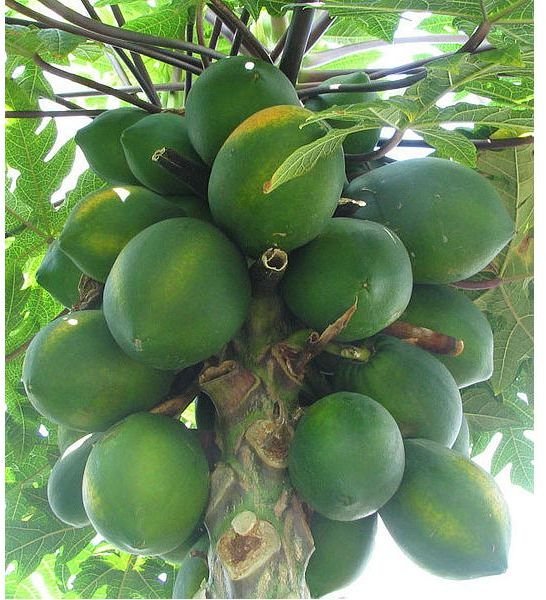What is Papaya Good For? Papaya Fruit Health Benefits, Nutrition Info & More on the Fruit of the Angels
The papaya is an “exotic” tropical fruit of the Carica papaya tree (in the Carica genus). It is a pear-shaped fruit cultivated in tropical countries such as a South Africa, Brazil, India, Haiti and Southeast Asia. Papayas are originally from Central America. It was brought to subtropical lands by the Portuguese and Spanish explorers.
These spherical fruits have an average size of 7 inches, but some can be as long as 20 inches. Papayas are delicious and sweet and are eaten raw when fully ripe. The unripe green papaya is used mainly in non-vegetarian curries as well as stews and salads. Inside, the papaya is a rich orange colored fruit with a slight tinge of pink and yellow. The seeds are edible and have a spicy taste.
Papayas are not only known for their deliciousness, but also known for their various health benefits. Rightly called “the fruit of the angels” by Christopher Columbus, an average sized papaya is a rich source of nutrients. But, what is papaya good for? Let’s see…
(Image: A Papaya tree, courtesy: https://en.wikipedia.org/wiki/File:Carica_papaya_-_papaya_-_var-tropical_dwarf_papaya_-_desc-fruit.jpg)
Health Benefits of Papaya
Papaya comes under the orange-colored fruit category and is a very good source of vitamin A, vitamin C, vitamin E and K. Rich in antioxidant nutrients such as flavonoids, pantothenic acid and folate, papayas are good for the cardiovascular system and protection against colon cancer.
The list doesn’t stop here! Papayas are filled with an array of nutrients including soluble and insoluble fiber, carbohydrates, minerals such as potassium and magnesium, and a unique digestive enzyme called papain, which is used to treat minor injuries and skin allergies. Let us learn more about the health benefits of papaya:
Papayas Strengthen the Immune System:
Papaya contains vitamin A and C, which are needed for a healthy immune system. Regular consumption of papayas is good for preventing colds and flu and other illnesses.
Improves Skin Health:
Yes, papayas give skin a healthy glow. Its vitamin E content minimizes the formation of wrinkles and delays the aging process. The result is a healthy glowing skin. The papain enzyme works as a great skin renewal agent by removing the dead skin. In Asian countries, there are various Ayurvedic soaps that are made from the papaya fruit to improve skin health.
Papayas Can Prevent Heart disease and Atherosclerosis:
Rich in antioxidants such as carotenoid phytonutrients, vitamin C and E, the papaya prevents the oxidation of cholesterol. Oxidized cholesterol builds up in blood vessel walls and form dangerous plaques, thus causing strokes or heart attacks. Papayas are also a rich source of fibers, which can help lower high cholesterol levels.
Protects Lungs:
This is for all you active (and passive) smokers. A research conducted by Kansas State University experts suggest that eating vitamin A fruits, like papayas, can counter the effect of vitamin A deficiency caused by a chemical named benzo(a)pyrene in cigarette smoke.
So, now you know “what is papaya good for.” Besides knowing about its health benefits, it is also important to know how to store and consume the papaya fruit. Here are some very informative tips on papaya storage and consumption:
Papaya Consumption and Storage Tips
• Unless you are planning to prepare an Asian salad or some curry, choose fully ripe papayas. Ripe papayas can be eaten raw. A papaya with a reddish-orange skin is the best candidate for eating raw. But make sure you eat within a day of purchase. Papayas are generally available during the fall and summer season. One should avoid papayas that are very soft or bruised.
• You can keep partially unripe papayas at room temperature. This will help them ripen within a few days. Alternatively, you can wrap the papaya in a newspaper or place it in a paper bag to quicken the ripening process.
• Store ripe papayas in refrigerators and consume them within a day or two to enjoy their deliciousness.
• People who suffer from a latex allergy should avoid eating papayas as they contain substances called chitinases. These substances have always been associated with this syndrome and can provoke an allergic reaction in some individuals.
These consumption tips and various benefits of papayas can be very helpful in your overall health regimen.
